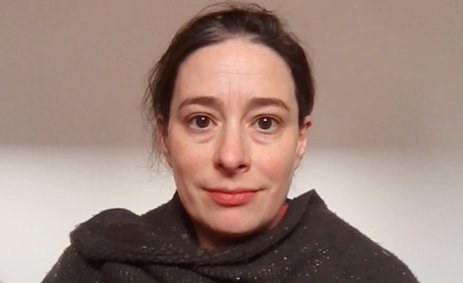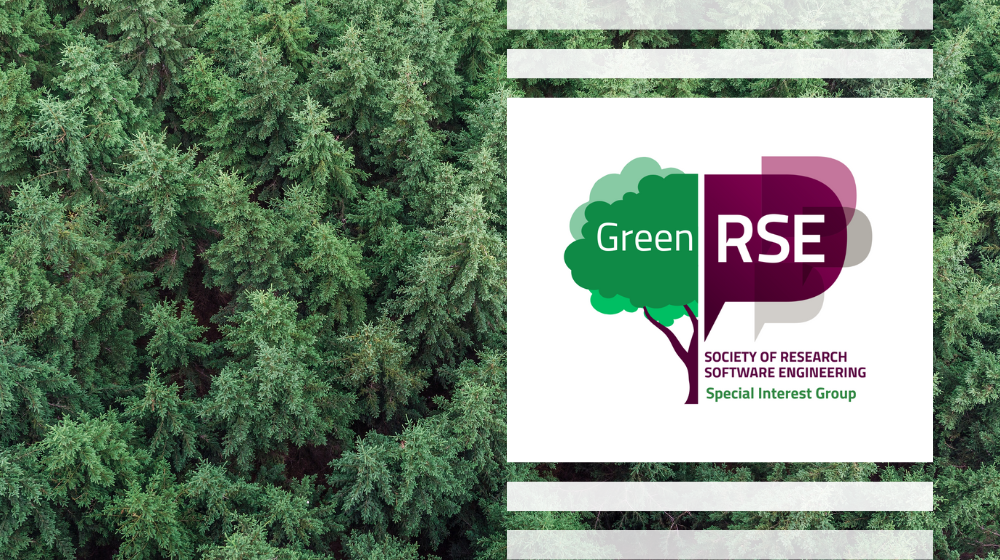RSECon is always a highlight for the Research Software Engineering community. There is a special energy when RSEs come together: shared purpose, practical problem-solving, and genuine warmth. At this year’s conference, we channelled some of that enthusiasm to address a pressing question: how can we reduce the environmental impact of digital research?
It is a complex challenge. RSEs are uniquely positioned to influence sustainability through efficient software, considered use of compute, and by supporting researchers to adopt lower-impact approaches. Yet sustainability is often absent from RSE job descriptions. The skills are there, but the structures, expectations, and opportunities are not always in place.
To bridge this gap, we conceived the Green RSE Special Interest Group (SIG) with the objective of embedding sustainability more deeply into research software practice. We believe that if we can bring together the knowledge and experience already held across the community, and provide clearer support and confidence to act, the transition to more sustainable digital research can be faster and easier for everyone.
Green RSE SIG - one year on
The Green RSE SIG was launched at RSECon24, and this year we returned with progress to share and new challenges to explore.
RSEs clearly have the skills and the motivation to make research computing more sustainable. What is often missing are the systems, incentives, and resources that allow this work to become part of everyday practice. |
We enjoyed a great range of talks, including Martin Farley (UKRI), who introduced the new SPARK-Hub platform, designed to provide researchers with practical actions and guidance on sustainability, helping them track their progress and gain recognition for their efforts. Wahab Kawafi presented on quantifying emissions from the new Isambard AI system, and Andy Turner shared insights from his work on Green RSE training and advocacy.
Talks were followed with a Mentimeter survey on the Green RSE training more generally. Attendees showed a tendency towards needing support on how to improve the sustainability of their code, but also on how to convince their colleagues (both within and outside of RSE) to consider and adopt Green practices. We gathered many suggestions on what Green RSE training should focus on going forward, as well as things attendees’ groups are already doing that might be of use to others. These will be used to inform SIG blog posts and activities.
It was good to see how much has moved forward. More people are experimenting, sharing tools, and treating sustainability as a core part of good research practice rather than an optional extra.
We then ran community discussions on a subset of the sustainability principles for RSEs, first developed at RSECon24.
The principles
RSEs identified the following as priorities at RSECon24:
- Funding applications for software projects and RSE posts should include a sustainability component
- RSEs have a responsibility to consider environmental impacts in the projects they support
- Sustainability should be included in RSE job descriptions where appropriate
- RSEs should track the energy usage of the software they produce and use
- RSEs should develop consistent methodologies for estimating energy use
- RSEs should be trained in green computing best practices
- RSEs should train and support researchers to work more sustainably
(These principles were selected at RSECon24 from a longer list, they were identified as being both important and achievable)
For each principle, we asked four questions: What gets in the way? What helps? Who holds responsibility? What should we do next?
There was a mixture of enthusiasm and realism. Many RSEs want to embed sustainability into everyday work. However, there was a clear understanding that this cannot rely solely on individual enthusiasm. Time, training, resources, and recognition all matter. RSEs already juggle many priorities, and while greener choices are desirable, people need support and structure to do this well.
What the community told us
At RSECon25, we found there to be strong enthusiasm across the community to build sustainability into everyday practice. Many already view it as part of good engineering: writing efficient code, using greener CI/CD, choosing appropriate compute resources via informed job scheduling, and helping researchers do the same.
However, we also heard clear challenges:
- Sustainability often sits beside, rather than within, core responsibilities
- There is limited time and training available
- Benchmarking and measurement tools are often not consistent
- It is not always obvious where to start or what “good” looks like
Participants shared practical ideas already in use: tools like CodeCarbon are helping track emissions, Pando Carpentries offers accessible training, and some institutions are using Slurm-based estimates to make energy consumption visible to users. |
Alongside these challenges, the mood in the room was practical and optimistic. Participants highlighted the need for:
- real case studies and examples
- accessible training (with some pointing to the Pando Carpentries)
- guidance and expectations set by funders and institutions
- simple, standard approaches for measuring energy use
- shared tools and best practice from within the community
A strong theme was that responsibility should not rest on individual RSEs alone. Funders, PIs, institutions, and infrastructure providers all have roles to play in shaping expectations and making change possible.
What happens next?
The message from the session was clear. RSEs are ready and willing to lead on sustainable research computing. However, to make real progress we need shared action, not just individual effort.
Over the coming year, the Green RSE SIG will:
- collect and share examples of good practice
- highlight training and learning opportunities
- work with partners, including funders, to embed sustainability expectations
- explore simple and consistent approaches to measuring energy use
A Green RSE Manifesto?
One idea we've been exploring is a "Green RSE Manifesto" - a lightweight set of commitments and principles that RSE groups could voluntarily adopt. This would be co-created with the community, not imposed top-down. The aim would be to offer a shared foundation and help signal collective intent, rather than to add pressure or create gate-keeping. We'd love to hear what RSEs and group leaders think: would this be useful? What would make it work for your context?
It is still early days, but there is real momentum. If you would like to get involved, whether you have tools to share, challenges to explore, or simply an interest in the topic, we would love to hear from you. Visit our webpage or join #green-sig on UKRSE slack.


